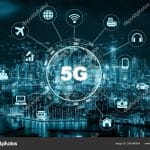The tech industry keeps evolving, with new fields arising day by day. One of these new fields is quantum computing. Quantum computing is a modern way of computing that is rapidly emerging and becoming renowned worldwide.
Are you a beginner in quantum computing? Here’s the perfect guide to quantum computing that will put you through all you need to know.
Table of Contents
What is Quantum computing?
Quantum computing is a multidisciplinary field that comprises computer science and physics, and utilizes the principles of quantum mechanics to optimize complex systems, crack encryption codes and solve technological problems.
It is built on three (3) science aspects which are:
- Computer science: This is the study of automation, computation and information of computers and how it can be applied to human daily activities.
- Physics: Physics, derived from the Greek word Physikos, is an aspect of science that studies matter, its structure, and interaction between the constituents of the universe. It also studies interactions between microscopic and submicroscopic particles of nature.
- Quantum mechanics: This is a fundamental theory of physics that studies the behavior of atomic and subatomic particles in nature. Quantum mechanics is a foundation for quantum information, quantum field theory, quantum chemistry, and quantum computing.
To understand the concept of quantum computing, you must understand the principles of physics, computer science, and quantum mechanics and their applications in quantum computing.
Read also: A Beginner’s Guide to Cloud Computing in Nigeria.
What is Linear Algebra?
Linear algebra, also referred to as quantum computing math, is used to describe quantum operations and qubit states (states of quantum bits usually taken to have the value of 0 and 1 but can exist in the multidimensional state) and to predict a quantum computer’s response to a sequence of instructions.
What is a Quantum Computer?
A Quantum computer is a machine that utilizes the principles of quantum physics and quantum theory to store data and enhance computations. They store data in binary digits called qubits (quantum bits), processing information faster than classical computers.
The first quantum computer was built in 1998 by Neil Gershenfeld of the Massachusetts Institute of Technology (MIT), Mark Kubines of the University of California at Berkeley, and Isaac Chiangmai of the Los Alamos National Laboratory. They created the first quantum computer ( 2-qubit) that could process data and output a solution.
Quantum Computing as a Career Path
As a beginner in quantum computing, obtaining a graduate degree in advanced concepts of general science, physics, mathematics, and computer science is required. This will aid your understanding of the practical applications in quantum computing, qualify you for higher positions, and help you to solve advanced problems.
To become skilled in quantum computing, you must be knowledgeable in quantum mechanics courses, cryptography courses, machine learning courses, astronomy courses, and electrical engineering courses.
As we proceed in this article, we will discuss each of these courses and their roles in quantum computing.
What You Need to Make a Pathway in Quantum Computing
Quantum computing requires broad knowledge of the principles of science, math, and their applications. Job opportunities in quantum computing require a bachelor’s degree in mathematics, physics, and other science-based courses. Here’s the pathway to becoming a qualified quantum computing professional;
-
Take courses
If you’re interested in choosing Quantum computing as a career path. Below are some courses you would study:
1. Quantum mechanics
In Quantum computing, principles of quantum mechanics are applied to finding solutions to technological problems. Quantum mechanics is a field of physics that involves the study of atoms, subatomic particles, and their behavior.
There are four types of quantum mechanics. They are:
- Quantization of physical properties: This concept defines the size and property of a physical quantity. It is a continuous process of mapping infinite values to a smaller set of finite values. Energy, light, matter, and angular momentum are quantized on the atomic level.
- Wave-particle duality: This is an aspect of quantum mechanics that studies how microscopic objects simultaneously possess characteristics of both particles and waves.
- Uncertainty principle: Also known as Heisenberg’s indeterminacy principle, formulated by Werner Heisenberg in 1927. The uncertainty principle states that the position and speed of a particle, such as a photon or neutron, cannot be known with perfect accuracy. The more a particle is restricted to a specific position, the less stable its speed and vice versa.
- Quantum entanglement: This phenomenon arises from the connection between particles. It occurs when a group of particles share spatial proximity and remain connected over long distances.
2. Physics
Quantum computing utilizes principles of physics to create new ways of computing. Since quantum mechanics is a field of physics, a deep knowledge and understanding of physics is required to operate quantum computers.
3. Mathematics
Quantum computing relies on fundamental aspects of mathematics such as linear algebra, complex numbers, and probability. All these contribute to the accurate functioning and operation of quantum computers as they help to describe quantum operations and qubit states and to predict a computer’s response to a sequence of instructions.
4. Cryptography
Quantum cryptography communication was set up to improve security and to protect critical information in the 5G era.
Quantum cryptography utilizes the naturally occurring properties of quantum mechanics. It applies it to quantum computing by encrypting data to safeguard it and transmit information so that it can’t be plagiarized.
5. Quantum programming
It is imperative to have a good knowledge of quantum programming languages to operate quantum computers. Quantum programming can be divided into two programming languages:
Imperative programming languages: This uses codes explicitly written to solve a software problem. In imperative programming, functions are coded in every step, and the code specifies how the problem can be solved.
Functional programming languages: Functional programming languages are based on mathematical functions and only support functional paradigms. Examples of functional programming languages are Lisp, Erlang, Haskell, Clojure, and Python.
Python is one of the most famous quantum programming languages. C++, Qiskit, Cirq, Quipper, Forest, and PyQuil are also programming languages used in quantum computing.
6. Electrical engineering
We all know that electricity powers quantum theory-based machines and devices! Hence, electrical engineers play a significant role in improving the overall performance of quantum computing systems by utilizing their expertise in circuit design, developing new strategies for optimizing qubit interactions, and minimizing noise.
-
Get quantum computing certifications
As a recent graduate, a STEM professional, or a learner in quantum computing, there are specific certifications you are required to acquire. One of them is the URI quantum computing graduate program, a course that can take you and your career into the future.
You can also earn quantum computing certificates through free online courses from Stanford, University of Toronto, Harvard, University of British Columbia, and other world-class universities. These certifications increase your knowledge in quantum machine learning, quantum programming, qoding, and every skill required to become a quantum computing professional.
-
Find a mentor in Quantum computing
There are many quantum computing programs and platforms where you can find a mentor, such as Pushfar, a world-leading platform in career, mentoring, and progression, and LinkedIn, a social media platform that is career and business-oriented.
We also have the quantum computing mentorship programme which accepts mentees based on qualification and assessment by mentors and the QOSF team. They choose those qualified to become mentees, the mentors are paired with whom they want to work with, and they share project ideas with them.
This helps learners overcome challenges such as shortage of educational materials and helps them gain knowledge about the practical applications of Quantum computing.
Read also: Choosing a Mentor: Factors to Consider for the Best Results
-
Join communities
Quantum communities offer developers open-source tools and educational events to harness the power of Quantum computing. Here are some of the top quantum computing communities you can join to improve your skills.
- Quantum community IEEE
- Quantum computing.com
- Quantum community IBM
- European quantum computing application community.
We also have the Qiskit open-source SDK, the leading platform for quantum development worldwide. Its active developer community is the largest in the world.
Joining any of the communities mentioned above would prepare you to become a professional in quantum computing, keep you updated about recent developments, and train you to be qualified for quantum computing job opportunities.
Read also: Who is a Network Engineer, And How do You Become One?
Applications of Quantum Computing
-
Cybersecurity
Unlike classical computers, which could take billions of years to break encryption without knowing the key, quantum machines undermine the foundations of cybersecurity by breaking RSA encryption schemes in minutes.
Quantum computers can solve problems that are way too sophisticated for classical computers. Computing quantum computers can help to double key sizes to ensure that the algorithms behind the encryption keys that protect our data and internet infrastructure remain safe.
-
Financial modeling
In today’s world, financial institutions also utilize quantum computing, where it is used in risk analysis and optimization of investment decisions, targeting and prediction, treasury management, asset management, and solving real-world financial problems.
-
Artificial intelligence (AI) and Machine learning
Artificial intelligence can benefit from quantum computing because it operates non-linearly, allowing you to explore viable solutions to problems. Quantum computing utilizes qubits, increasing the efficiency, speed, and accuracy of AI-based devices.
In machine learning, quantum computers control systems and optimize hardware operations and user interfaces. They solve machine-learning problems and perform machine-learning tasks.
-
Batteries
The availability of higher performance and lower cost batteries is thanks to the development of quantum batteries built through direct modeling of quantum-mechanical systems and quantum effects such as super-absorption and entanglement, enabling higher performance of batteries.
-
Healthcare
Quantum computing has improved healthcare services in terms of drug manufacturing and research. Through detailed modeling, quantum computing has enabled the development of new medicines and therapies. It offers the potential to advance drug discovery, precision medicine, and diagnosis through complex analysis.
In early 2023, IBM and Cleveland Clinic unveiled the first quantum computer dedicated to healthcare research in Cleveland Clinic’s main campus.
Join our WhatsApp community to access tips, opportunities and resources that will help you in your career growth.
Conclusion
Quantum computing is a part of the fifth industrial revolution which impacts every aspect of human life and activity. Becoming a Quantum computing professional is quite a challenging path to tread, but if you keep at it and become successful, you will be presented with well-paying jobs enabling you to live comfortably.
Subscribe to our newsletter to receive notifications of our latest insightful posts when they are published.
Edited by Oluwanifemi Akintomide.
About Author
-
Obafaiye Precious is a content writer by skill. I love to articulate ideas, thoughts and memories into words, and am a deep lover of poetry. I'm Nigerian by birth, I love to write about my country and Africa at large!
I hope to become one of the best professional content writers.
So help me God!
Latest entries
 WomenApril 19, 2024Heart Attack in Women: Meaning, Causes, Symptoms and Prevention
WomenApril 19, 2024Heart Attack in Women: Meaning, Causes, Symptoms and Prevention
 CareerFebruary 6, 2024Industrial Design as a Course in Nigeria: The Hidden Treasures
CareerFebruary 6, 2024Industrial Design as a Course in Nigeria: The Hidden Treasures TechnologyJanuary 7, 2024A Beginner’s Guide to Quantum Computing
TechnologyJanuary 7, 2024A Beginner’s Guide to Quantum Computing

